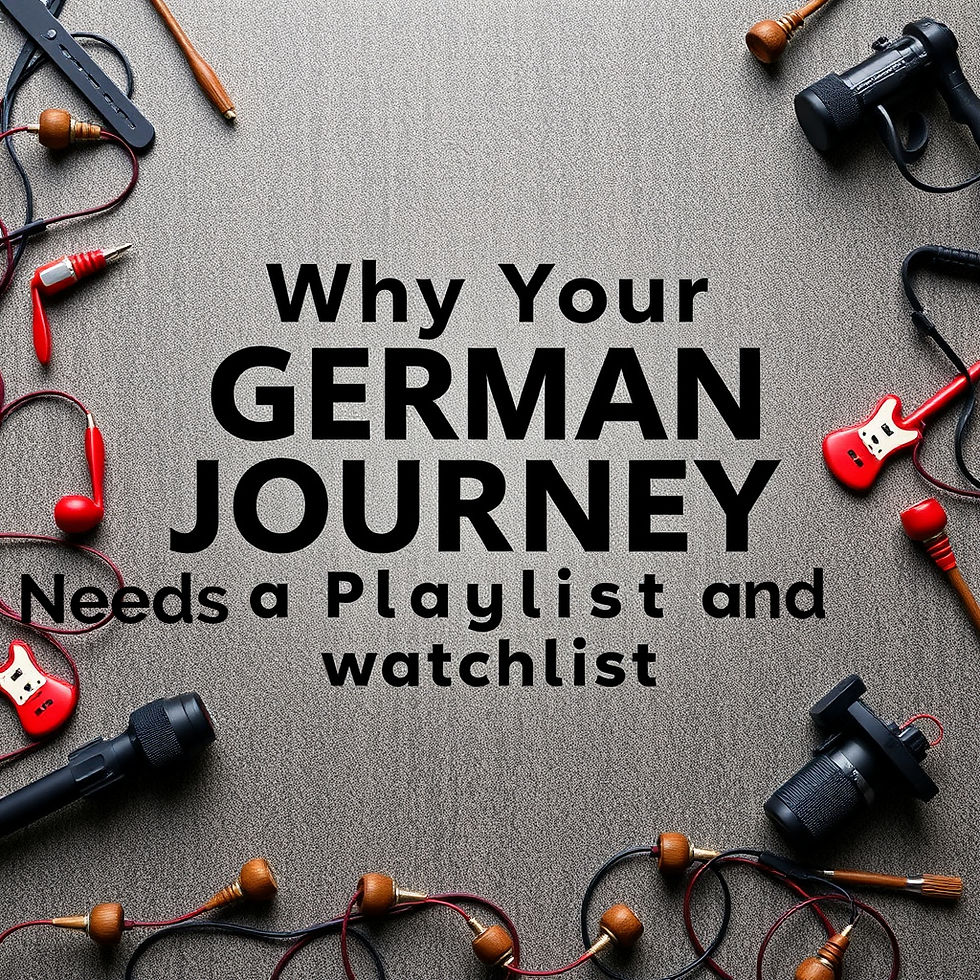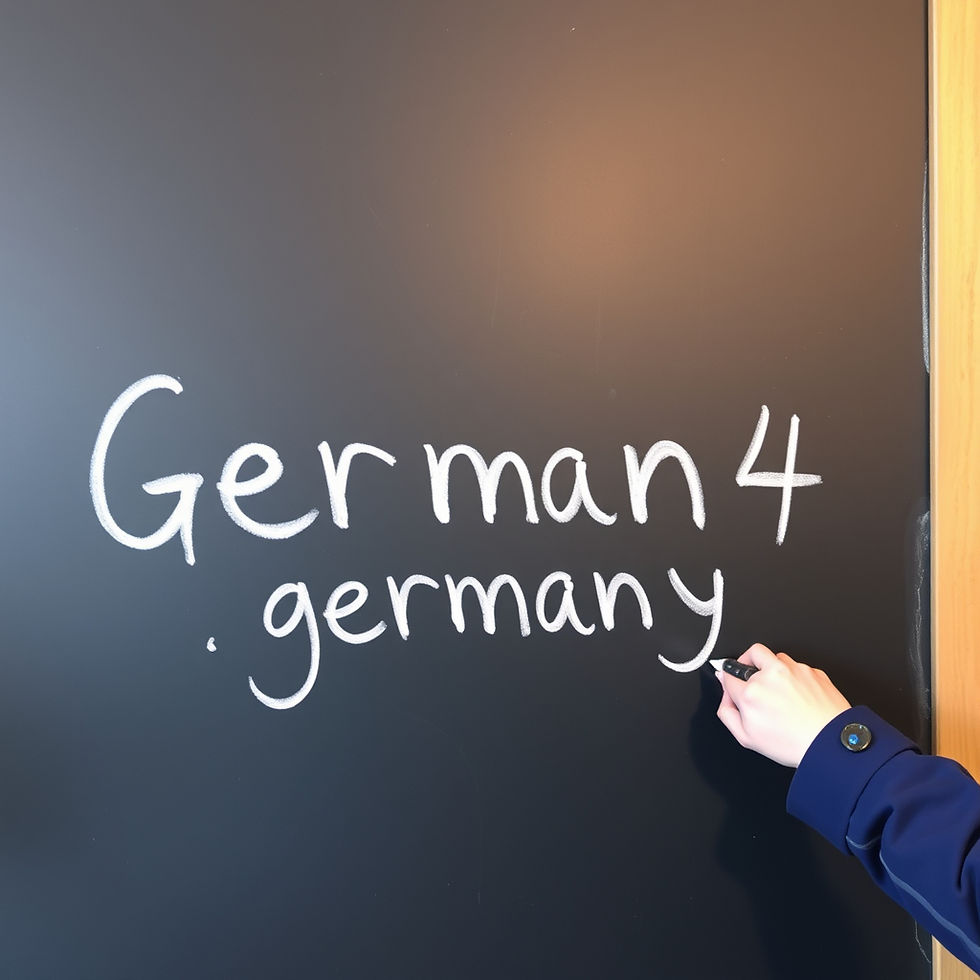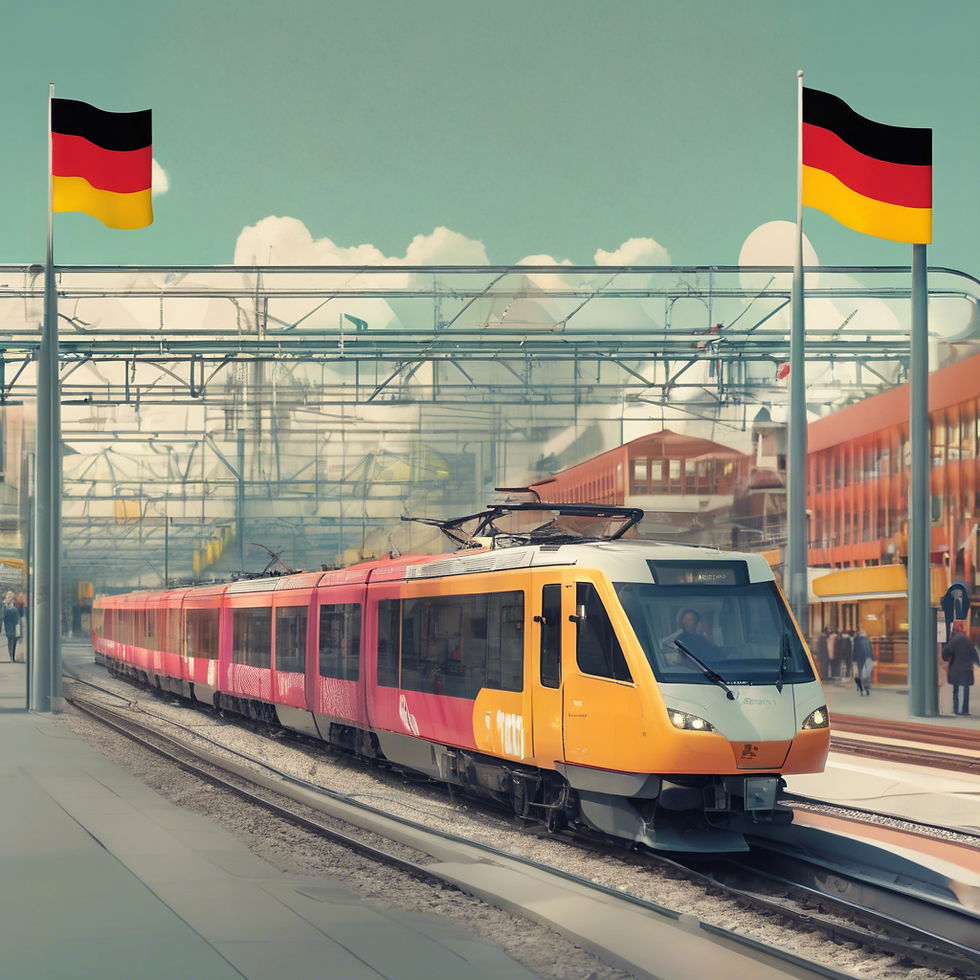Why Your German Language Journey Needs a Playlist and a Watchlist
- Sanjeev Rawat
- May 31, 2025
- 3 min read
Updated: Jun 4, 2025

The essence of Germany lies not only in its stunning architecture and car engineering; it beats within the lively pulse of techno music in Berlin, the striking images of monochrome cinematography, and the bold sounds of a punk guitar. Forget the old-school textbooks; plunge into its rich tapestry of music and film to fully embrace German culture. The following explains why these artistic sectors are key resources for comprehending this nation while simultaneously savoring the process of learning its language.
Music: From Bach’s Brilliance to Berlin’s Nightlife
Imagine traversing through 300 years of musical history. It starts with Johann Sebastian Bach, whose sophisticated compositions from the 1700s were not merely exquisite; they were also mathematical masterpieces. Imagine him composing complex fugues in a peaceful church, where notes interweave like the mechanisms of a precision clock. Jump ahead to Ludwig van Beethoven, whose powerful symphonies resonated throughout concert halls. His music was not just background noise; it was a compelling reflection of human adversity and achievement, especially as he composed his renowned Ninth Symphony while enduring the loss of his hearing.
But Germany’s soundtrack took a sharp turn in the 1920s. As the Weimar Republic crumbled, artists turned nightclubs into stages of rebellion. Marlene Dietrich slinked onto screens in The Blue Angel, her smoky voice dripping with cynicism. In hidden corners, young Germans spun forbidden American jazz records, dancing as a quiet protest against a darkening political sky.
Then came the 1970s revolution. Bands like Kraftwerk ditched guitars for synthesizers, creating electronic hymns like Autobahn, a hypnotic ode to Germany’s highways that would birth techno music. Today, that spirit lives in Berlin’s legendary clubs like Berghain, where DJs command dance floors for 24 hours straight, and the beat becomes a language everyone understands.
Don’t miss modern twists: Rammstein’s fire-breathing metal anthems, the catchy (if cheesy) Schlager tunes at beer festivals, or rappers like Cro blending pop and hip-hop. German music isn’t a museum it’s a living, pulsing conversation between past and present.
Cinema: Shadows, Machines, and Unforgettable Stories
German filmmakers didn’t just design films, they changed the course of storytelling itself. In the aftermath of World War I, visionaries like Fritz Lang and F.W. Murnau birthed the genre of Expressionist cinema. Visualize The Cabinet of Dr. Caligari (1920): its twisted, brightly painted scenes and the ghostly sleepwalking murderer create a chilling dream from which liberation appears impossible. Or imagine Nosferatu (1922), where the vampire’s shadow slowly creeping up the stairs remains capable of sending shivers down spines even in this day. These artistic gems utilized vivid oppositions, twisted angles, and deep silence to excavate the realms of dread, lunacy, and the personal demons that dwell inside us.
In the 1970s, a new wave of directors like Rainer Fassbinder and Werner Herzog tore up the rulebook. Fassbinder’s Fear Eats the Soul (1974) exposed racism and loneliness in post-war Germany through a love story between an older cleaning lady and a young Moroccan immigrant. Herzog dragged a steamship over a mountain in Fitzcarraldo (1982), a mad metaphor for human obsession.
Today, German cinema is winning Oscars and breaking hearts. All Quiet on the Western Front (2022) didn’t just show World War I’s horror it made you feel the mud, panic, and pointless loss. Netflix’s Dark (2017) twisted time travel into a generational tragedy set in a rainy German town. Even comedies like Good Bye, Lenin! (2003) used humor to unpack the messy joy and pain of German reunification.
Why Music and Movies Matter for Your German Language Journey
You might wonder: Why dive into music and films when I’m just learning German Language? Because they’re your cheat codes.
Hear the Real Language: Song lyrics and movie dialogues aren’t textbook-perfect. They’re full of slang, emotion, and cultural quirks. Listening to a punk rocker scream or a romantic ballad sigh teaches you how Germans actually express joy, anger, or irony.
Feel the History: A Weimar-era cabaret song tells you more about pre-Nazi anxiety than any lecture. A film about the Berlin Wall (The Lives of Others) makes history visceral, not just factual.
Connect with New Friends: Chat about the latest Til Schweiger rom-com or debate the best techno club in Berlin. Suddenly, you’re not just speaking German—you’re sharing passions.
Grammar Feels Less Scary: When you associate German with the moody beauty of a Hans Zimmer score or the suspense of a psychological thriller, textbooks stop feeling like work.
Turn On, Tune In, Geh Deutsch!
So put on your headphones and get lost. Engage with Kraftwerk’s Autobahn and feel the electric rhythm of contemporary Germany echo through you. Check out Run Lola Run (1998) and rush through Berlin, with Franka Potente’s radiant flame-red locks in tow. Delve into a delightful Kino (cinema) in Munich or surrender to the rhythm of dance until dawn in Hamburg. The vibrant culture of Germany is not just displayed in glass cases; it flourishes on the streets, flickering screens, and booming speakers, just waiting for you to hit play.



